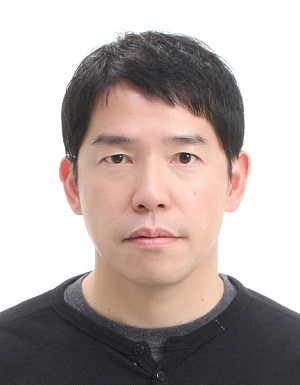people
The Association for Computing Machinery (ACM), the world’s largest educational and scientific computing society, released a list of its new fellows on December 8, 2015, the 2015 ACM Fellows.
Professor Naehyuck Chang of the School of Electrical Engineering at KAIST was among the 42 new members who became ACM Fellows in recognition of their contributions to the development and application of computing in areas from data management and spoken-language processing to robotics and cryptography.
Professor Chang is known for his leading research in power and energy optimization from embedded systems applications to large-scale energy systems such as device- and system-level power and energy measurement and estimation, liquid crystal display power reduction, dynamic voltage scaling, hybrid electrical energy storage systems, and photovoltaic cell arrays. He is the fourth Korean to be nominated an ACM Fellow.
Professor Chang is also a Fellow of the Institute of Electrical and Electronics Engineers (IEEE) and the Editor-in-Chief of the journal, ACM Transactions on Design Automation of Electronic Systems (TODAES). He served as the President of the ACM Special Interest Group on Design Automation in 2012.
Additional information about the ACM 2015 Fellows, go to http://www.acm.org/press-room/news-releases/2015/fellows-2015:

-
event KAIST Professor Uichin Lee Receives Distinguished Paper Award from ACM
< Photo. Professor Uichin Lee (left) receiving the award > KAIST (President Kwang Hyung Lee) announced on the 25th of October that Professor Uichin Lee’s research team from the School of Computing received the Distinguished Paper Award at the International Joint Conference on Pervasive and Ubiquitous Computing and International Symposium on Wearable Computing (Ubicomp / ISWC) hosted by the Association for Computing Machinery (ACM) in Melbourne, Australia on October 8. The ACM
2024-10-25 -
people Professor Dongsu Han Named Program Chair for ACM CoNEXT 2020
Professor Dongsu Han from the School of Electrical Engineering has been appointed as the program chair for the 16th Association for Computing Machinery’s International Conference on emerging Networking EXperiments and Technologies (ACM CoNEXT 2020). Professor Han is the first program chair to be appointed from an Asian institution. ACM CoNEXT is hosted by ACM SIGCOMM, ACM's Special Interest Group on Data Communications, which specializes in the field of communication and computer networ
2020-06-02 -
research Sound-based Touch Input Technology for Smart Tables and Mirrors
(from left: MS candidate Anish Byanjankar, Research Assistant Professor Hyosu Kim and Professor Insik Shin) Time passes so quickly, especially in the morning. Your hands are so busy brushing your teeth and checking the weather on your smartphone. You might wish that your mirror could turn into a touch screen and free up your hands. That wish can be achieved very soon. A KAIST team has developed a smartphone-based touch sound localization technology to facilitate ubiquitous interact
2018-12-26 -
research It's Time to 3D Sketch with Air Scaffolding
People often use their hands when describing an object, while pens are great tools for describing objects in detail. Taking this idea, a KAIST team introduced a new 3D sketching workflow, combining the strengths of hand and pen input. This technique will ease the way for ideation in three dimensions, leading to efficient product design in terms of time and cost. For a designer's drawing to become a product in reality, one has to transform a designer's 2D drawing into a 3D shape; however
2018-07-25 -
research A New Theory Improves Button Designs
Pressing a button appears effortless. People easily dismisses how challenging it is. Researchers at KAIST and Aalto University in Finland, created detailed simulations of button-pressing with the goal of producing human-like presses. The researchers argue that the key capability of the brain is a probabilistic model. The brain learns a model that allows it to predict a suitable motor command for a button. If a press fails, it can pick a very good alternat
2018-03-22